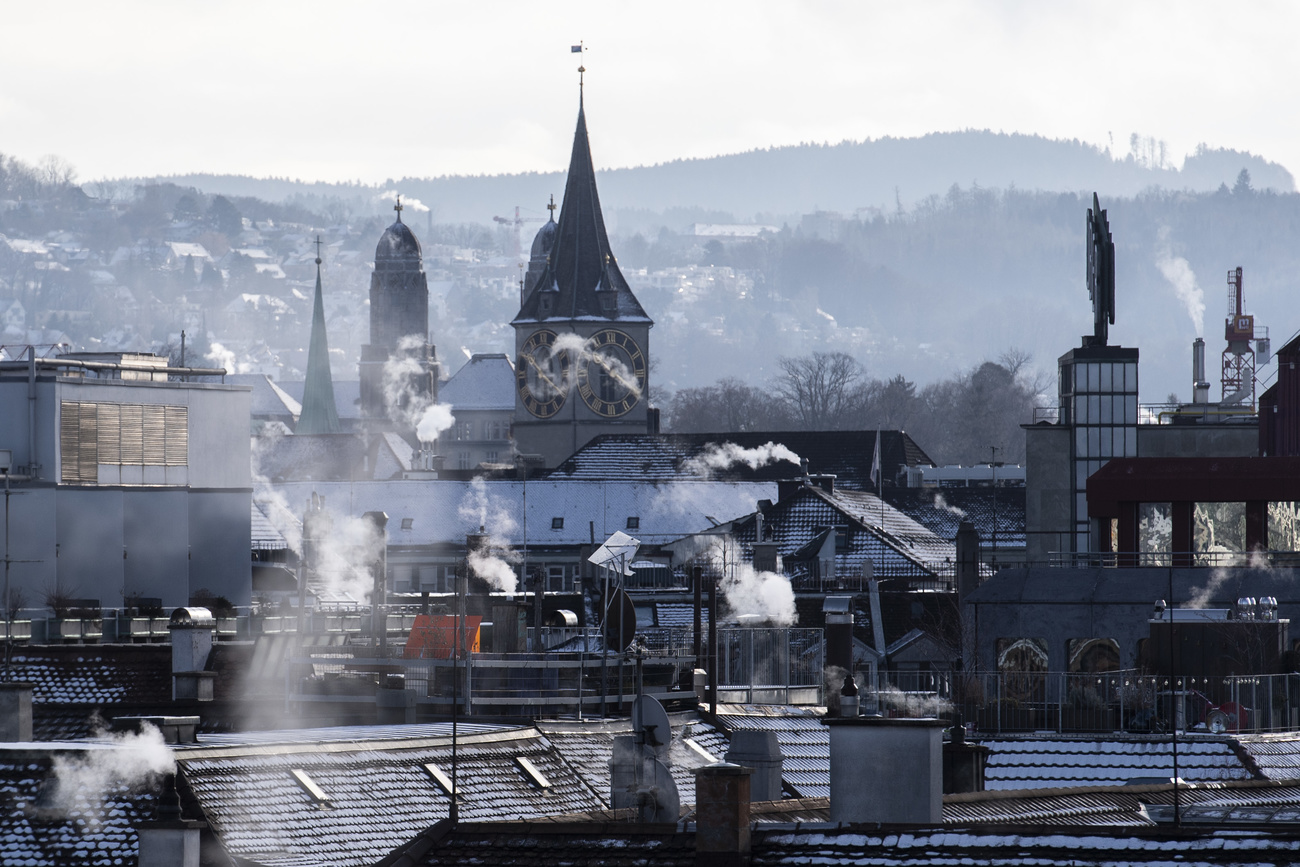
Carbon neutrality to cost Switzerland CHF387 billion

Switzerland needs to invest CHF13 billion a year ($14 billion), the equivalent of 2% of gross domestic product (GDP), over the next three decades to meet its 2050 carbon-zero goal, a study has found.
The joint studyExternal link by the Swiss Bankers Association (SBA) and the Boston Consulting Group (BCG), published on Thursday, calculated that CHF387.2 billion would have to be invested over the next 30 years to meet this objective.
“The bulk of this investment is needed in the sectors of light road traffic, buildings and heavy road traffic,” the report said.
BCG Managing Director Christian Schmid said the required spending would equate to roughly double Switzerland’s current military outlays.
“The Swiss economy is certainly in a position to afford this,” he told reporters on Thursday.
The authors of the report said Swiss banks and other financial institutions should be able to cover the lion’s share – around 91% – of the investment through bank loans and the capital market. The remaining funds should come other sources, such as private-public partnerships, the report said.
“For the transition – and its financing – to succeed, there has to be optimal interplay between the Swiss state, economy and financial centre,” the authors wrote.
The report added that companies and private individuals must continue to invest in sustainable measures such as modernising buildings, switching to more energy-efficient production methods or upgrading vehicle fleets to meet the climate goal.
Swiss measures
Switzerland announced in 2019 that it aims to reduce its net carbon emissions to zero by 2050, thus meeting the internationally agreed target of limiting global warming to a maximum of 1.5°C when compared with the pre-industrial era.
Earlier this month, the government laid out its plans how to reduce greenhouse gas emissions to zero. The proposal was made as a counter-project to a people’s initiative handed in by a broad alliance of climate organisations in 2019.
Parliament still has to discuss the government proposal and the initiative before they are put to a nationwide vote next year or in 2023. Environmental groups and the Green Party have criticised the government’s plans as “not ambitious enough” and “insufficient”.
In June, Swiss voters rejected a revised law seeking to halve CO2 by 2030 notably through an increase in the price of petrol and diesel.

In compliance with the JTI standards
More: SWI swissinfo.ch certified by the Journalism Trust Initiative






























You can find an overview of ongoing debates with our journalists here . Please join us!
If you want to start a conversation about a topic raised in this article or want to report factual errors, email us at english@swissinfo.ch.